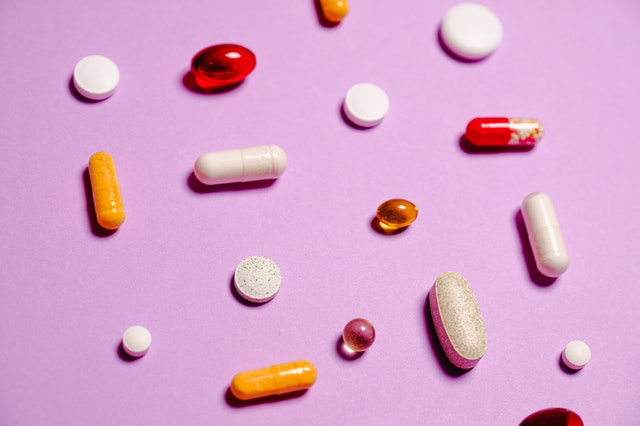Even before the global pandemic happened, people knew that vitamins could help boost people’s immune systems. Now that everyone’s at home because of Covid-19, it’s more important to know which vitamins are best for the immune system when people need them most.
Although some of these vitamins are not automatically present in our bodies, we found ways to incorporate them in most food items today. If you’re missing out on any of these, it’s time to keep up and reach the recommended dietary allowance for each.
Vitamin B12 (Cobalamin)
Vitamin B12 is a water-soluble vitamin responsible for producing DNA and red blood cells in the body. It is usually sourced from foods or supplements regularly. The dosage varies depending on age—people over 14 years of age should get 2.4 mcg. However, for adults above 50 years old, 500 mcg is the standard, while others may need 1000 mcg. Consult your doctor to know more.
Fortified food items are rich in vitamin B12. Animal sources, such as dairy products, eggs, fish, meat, and poultry, are also good sources. However, vegetarians and vegans may experience a deficiency in their diets. But fortified foods should resolve the lack of vitamin B12 in what they eat.
Folate and Folic Acid
Folate is the natural form of vitamin B9, responsible for the formation of DNA and RNA and involved in protein metabolism. It also plays a vital role in breaking down homocysteine, an amino acid that can cause harmful effects in the body if present in high amounts. Meanwhile, folic acid is the synthetic form of folate. Both are essential vitamins during pregnancy, producing healthy red blood cells and critical during fetal development.
The recommended dietary allowance for folate is listed as micrograms (mcg) of dietary folate equivalents (DFE). People older than 19 years old should aim for 400 mcg DFE. Meanwhile, pregnant and lactating women need more at around 600 and 500 mcg DFE, respectively. However, people who regularly drink alcohol will need at least 600 mcg of folate daily as alcoholic drinks can impair the body’s absorption of the vitamin.
Folic can easily be found in bread, assorted cereals, flour, cornmeal, pasta, rice, and other grain products. The U.S. Food and Drug Administration (FDA) required manufacturers that folic acid be added to enrich most foods in the market.
Vitamin D
Vitamin D is responsible for the absorption of calcium needed by the bones and teeth. The lack of it has been linked to certain cancers and heart diseases. However, its difference from other vitamins is where it comes from—the sun. Therefore, low vitamin D levels are observed in people living in high altitudes, places with polluted air, and those who wear clothes meant to cover the body.
The dosage of vitamin D depends on the person’s age. It is measured in micrograms (mcg) or in international units (IU). A microgram of vitamin D is equal to 40 IU. From the ages 1 to 70, along with pregnant women, the dosage should be around 15 mcg (600 IU). Meanwhile, adults above 70 years old need at least 20 mcg (800 IU).
Vitamin B6
Vitamin B6, also known as pyridoxine, is a water-soluble vitamin significant to protein, fat, and carbohydrate metabolism and creates red blood cells and neurotransmitters. The human body does not produce it, but people can get it from a mix of meats, whole grains, vegetables, and nuts.
Vitamin B6 is also known for regulating sleep, appetite, and mood. It plays a significant role in cognitive abilities and immune functions. Deficiency is rare, but most people do not acquire the recommended daily amount for it. The RDA for vitamin B6 is 1.3 to 1.7 mg for adults over 19.
Vitamin A
Vitamin A is essential for vision, healthy skin, and immunity. There are two types of vitamin A—retinoid, sourced from animals, and beta-carotene, which comes from plants. The two types of vitamin A are then converted in the body into an active form of vitamin A.
Eggs, milk, butter, cheese, and liver are the only foods rich in retinoids. Meanwhile, carrots, sweet potatoes, winter squash, spinach, and broccoli are all rich sources of beta-carotene. The recommended daily amount of vitamin A depends on age and gender. Pregnant and breastfeeding may need more than children and men.
Conclusion
If you think of it, it’s not too challenging to acquire the RDA for each vitamin listed. All we need to ensure is to eat a balanced diet every time we dine. It would also be best to supplement what we eat with food supplements that contain each vitamin essential to boosting our immune system.123Immunity believes in the capacity of our immune system to protect us from bacteria, viruses, and any harmful microbes that may cause harm to our bodies. Our goal is to supplement the body with carefully formulated food supplements to support its natural defenses. Place your orders now on our website and get free shipping on all orders.



